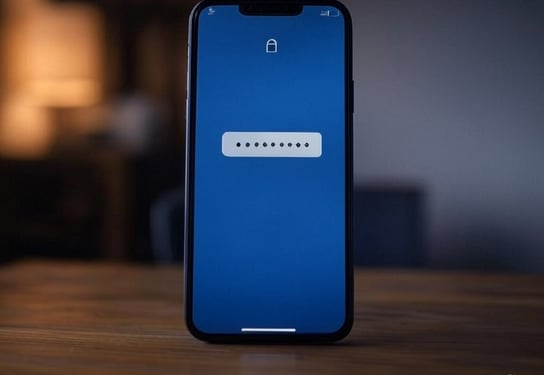How to Protect Your Information Online Without Being a Tech Expert
Learn how to protect your online information in a simple and practical way, with digital security and privacy tips anyone can use.


How to Protect Your Information Online Without Being a Tech Expert
Have you ever stopped to think about how much of your life is online? Your photos, messages, passwords—even your credit card number—they’re all out there, stored somewhere we can’t even see. But what if someone got access to that stuff? Just thinking about it gives you chills, right? The good news is, you don’t have to be a tech genius to stay safe. Today, I’ll explain—like we’re just chatting on the couch—how to protect your information online without being a technology expert. These are simple tips anyone can use to boost digital security and privacy. Let’s do this together?
Why Does Your Online Information Need Protection?
First things first—let me tell you why this matters. Whenever you use the internet—whether you’re chatting with friends, shopping, or just watching a video—you leave a trail. It’s like a breadcrumb path showing where you’ve been. These breadcrumbs are your personal info: your name, address, shopping habits. And some people out there can use that in bad ways—like stealing your money or pretending to be you.
For example, have you heard of someone who had their credit card cloned after shopping online? Or someone whose social media account got hacked? That usually happens because their information wasn’t well protected. But don’t worry—you don’t need to fear the internet. You just need to know how to stay safe.
Digital Security: Start with Strong Passwords
Let’s talk about how to protect your online info without making it complicated. First up: your passwords. You know those super simple ones like “123456” or your dog’s name? They might be easy for you, but they’re also easy for others to guess. So how about making your passwords stronger?
Think of it this way: a good password is like a key no one else can copy. Try mixing letters, numbers, and symbols—something like “Sun#2023” or “Cat*15.” And if you can, use a different password for each thing—one for email, another for your bank, and another for social media. I know it sounds hard to remember them all, but here’s a trick: you can write them down in a notebook or use a password manager app like LastPass or 1Password. These apps are like a vault for your phone.
Don’t Use the Same Password Everywhere
It’s tempting to use the same password for everything—it’s easier to remember. But imagine if someone finds out that password. It’s like giving a stranger the keys to your entire house. When you use different passwords, even if one gets exposed, your other accounts stay safe. It’s a small step that makes a big difference.
Be Careful What You Click
Another big one—watch what you click on. You know those emails or messages that say “You won a prize!” or “Click here to see your account”? Many of them are fake. They’re designed to trick you into giving away personal info. It’s like a wolf in sheep’s clothing.
Before clicking anything, take a good look: does the email seem weird? Are there spelling mistakes? If something feels off, don’t click. And never enter your password or credit card number into links you don’t recognize. If it’s from your bank, it’s better to go straight to their website by typing it yourself, like “www.yourbank.com,” than clicking a link that just popped up.
Be Suspicious of Deals That Seem Too Good
You know those dream deals, like “iPhone for $20”? Be suspicious! A lot of times, they’re scams trying to steal your info. If it sounds too good to be true, it probably is. Stick to shopping on sites you know and trust.
Use Two-Factor Authentication
Here’s a tip that’s like putting an extra lock on your door: enable two-factor authentication. A lot of sites—like Gmail or WhatsApp—offer this. It works like this: besides your password, you’ll need a second step to log in, like a code sent to your phone. It’s like an extra password that only you have.
So even if someone guesses your password, they still can’t get in without that phone code. It’s a free, simple layer of digital protection. Next time you log into your email or social media, look for this option in the settings—usually called “two-factor authentication” or “2-step verification.”
Watch Out for Public Wi-Fi
Ever used Wi-Fi at a mall or coffee shop? Super convenient, right? But here’s the thing: public networks aren’t very secure. It’s like leaving your front door open for anyone to walk in. Someone could “spy” on what you’re doing and steal your info—like passwords or credit card numbers.
If you have to use public Wi-Fi, avoid doing important stuff like banking or shopping. And if possible, use a VPN—it’s an app that protects your connection like a shield. There are free and easy-to-use VPNs, like ProtonVPN or TunnelBear. Just install the app and turn it on before using public Wi-Fi.
Keep Your Computer Updated
If you use a computer, one simple thing that helps a lot is keeping everything updated. You know those annoying messages that say “Update your system” or “New browser version available”? Don’t ignore them! Updates are like vaccines for your computer—they fix holes that someone could use to break in and steal your data.
Don’t Overshare Online
Let’s talk about privacy. Have you ever thought about what you post on social media? Travel pics, your kid’s name, where you live—all that can be used by someone with bad intentions. For example, if you post about being on vacation, someone might know your house is empty. Or if you share your full address, it can be used to track you down.
Try sharing less personal stuff. Set your profiles to private so only your friends can see them. And if a stranger messages you asking for personal info, don’t respond. Think of it like not giving your home address to someone on the street.
Be Careful with Online Quizzes and Games
You know those fun quizzes like “What fruit are you?” or “Find your fairy name”? They might seem harmless, but many ask for things like your name, birthday, or first school. That info can be used to guess your passwords or even steal your identity. So think twice before you answer.
How Can This Change Your Life?
Knowing how to protect your info online gives you peace of mind. Imagine not having to worry about someone stealing your money or hacking your account. It’s like locking your front door before leaving—you just feel safer. And the best part: these tips are so easy, you can start today, no tech skills needed.
Over time, it becomes a habit, and you’ll use the internet more confidently, knowing you’re protecting yourself and your family. It’s a small effort that makes a big difference.
You Can Stay Safe Online the Simple Way
So, what did you think of these ideas? Protecting your info online doesn’t have to be hard—even if you’re not a tech expert. With strong passwords, two-factor authentication, being careful with what you click, and sharing less, you’re already taking a huge step toward better digital security and privacy.
Try starting with just one tip today. Maybe change a password or turn on two-factor authentication for your email. Little by little, you’ll feel safer and more confident using the internet. You deserve that peace of mind!
Key Takeaways
Your online info—like passwords and credit card numbers—needs protection to avoid scams.
Use strong, unique passwords for every account and store them in a safe place.
Be wary of suspicious links, fake emails, and “too good to be true” deals.
Enable two-factor authentication for an extra layer of security.
Avoid doing important tasks on public Wi-Fi, and use a VPN if needed.
Keep your computer updated to avoid security gaps.
Share less personal info on social media and set your profiles to private.
